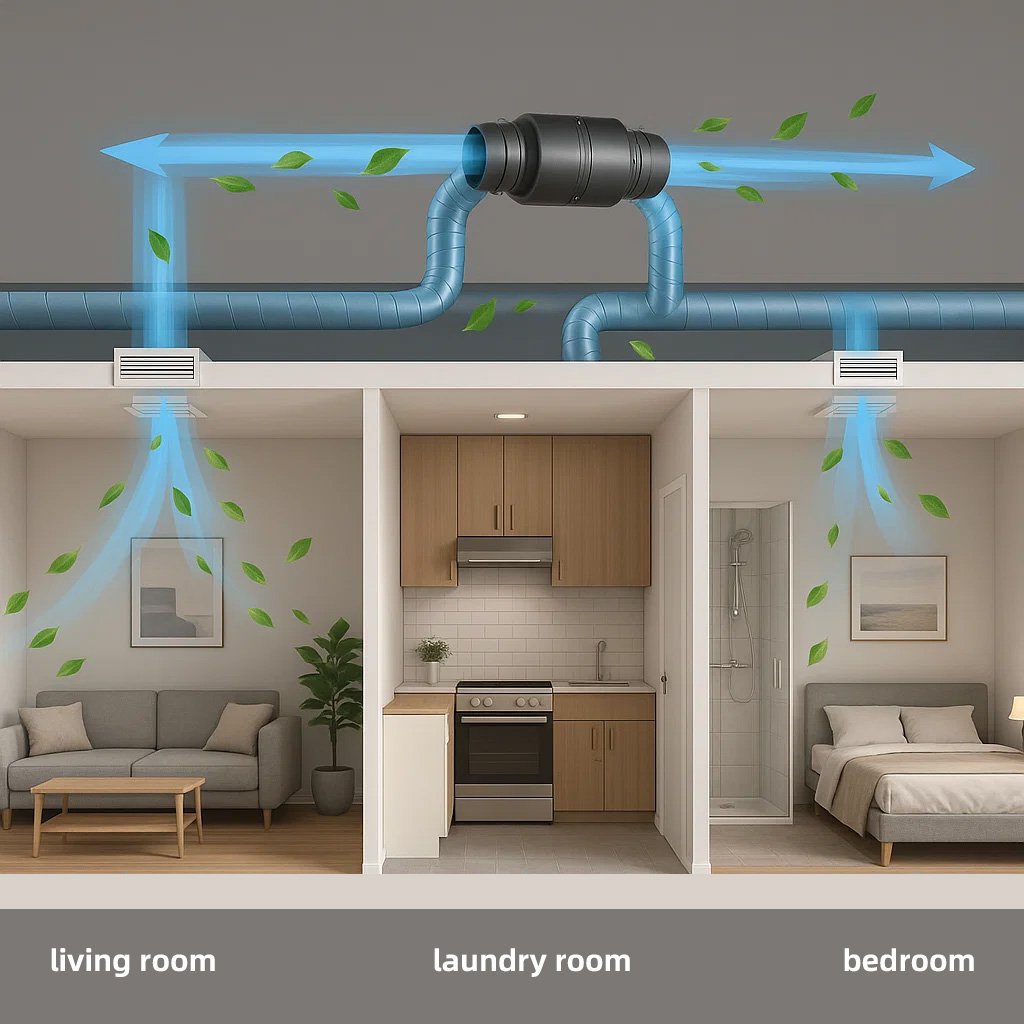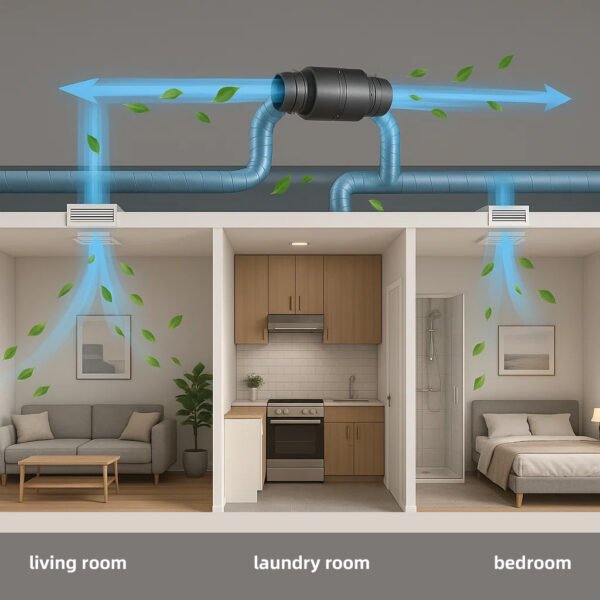
Ventilation 101: Everything You Need to Know About Duct Exhaust Fans
Introduction to Duct Exhaust Fans
A duct exhaust fan is a crucial component in modern ventilation systems, designed to remove stale air, odors, and contaminants from residential, commercial, and industrial spaces. These fans work by pulling air through ductwork and expelling it outside, creating proper air circulation and maintaining indoor air quality.
Why Duct Exhaust Fans Matter
Improve indoor air quality by removing pollutants
Control humidity levels to prevent mold growth
Eliminate cooking odors and smoke in kitchens
Remove excess moisture in bathrooms
Maintain proper ventilation in industrial facilities
Types of Duct Exhaust Fans
1. Inline Duct Exhaust Fans
Best for: Hidden installations within duct systems
Features:
Mounts directly in the ductwork
Space-saving design
Quiet operation
Ideal for long duct runs
2. Centrifugal Duct Exhaust Fans
Best for: High-pressure applications
Features:
Powerful airflow
Handles long duct runs effectively
Durable construction
Common in industrial settings
3. Axial Duct Exhaust Fans
Best for: General ventilation needs
Features:
Energy efficient
Cost-effective
Suitable for short duct runs
Common in residential applications
Key Considerations When Choosing a Duct Exhaust Fan
Airflow Capacity (CFM)
Calculate the required Cubic Feet per Minute (CFM) based on:
Room size (length × width × height)
Number of air changes needed per hour
Specific application requirements
Duct Size Compatibility
Match the fan to your existing ductwork:
Common sizes: 4″, 6″, 8″, 10″ diameters
Larger ducts require more powerful fans
Proper sizing ensures optimal performance
Noise Levels
Measured in sones:
Residential: 0.5-2.0 sones
Commercial: 2.0-4.0 sones
Industrial: 4.0+ sones
Energy Efficiency
Look for:
ENERGY STAR® certified models
EC (electronically commutated) motors
Variable speed controls
Installation Guide for Duct Exhaust Fans
Step-by-Step Installation
Plan the duct route – Determine the most direct path to the exterior
Select mounting location – Choose between wall, ceiling, or inline installation
Prepare the opening – Cut precise holes for the duct and fan
Secure the fan – Follow manufacturer’s instructions for proper mounting
Connect ductwork – Use rigid or flexible ducts with proper sealing
Wire the fan – Connect to power source following local electrical codes
Test the system – Verify proper airflow and operation
Maintenance Tips for Optimal Performance
Regular Maintenance Schedule
Monthly: Check for unusual noises or vibrations
Quarterly: Clean fan blades and housing
Annually: Inspect ductwork for leaks or blockages
As needed: Lubricate motor bearings (if applicable)
Troubleshooting Common Issues
| Problem | Possible Cause | Solution |
|---|---|---|
| Weak airflow | Clogged filters or ducts | Clean or replace filters |
| Noisy operation | Loose parts or worn bearings | Tighten components or replace bearings |
| Fan not working | Electrical issues | Check wiring and power supply |
| Excessive vibration | Improper mounting | Re-secure mounting brackets |
Applications of Duct Exhaust Fans
Residential Uses
Kitchen range hoods
Bathroom ventilation
Whole-house ventilation systems
Attic and crawl space ventilation
Commercial Applications
Restaurant kitchens
Hotel bathrooms
Office building ventilation
Retail space air quality control
Industrial Settings
Manufacturing facilities
Chemical processing plants
Laboratories
Warehouses
Conclusion
Choosing the right duct exhaust fan requires careful consideration of your specific needs, space requirements, and ventilation goals. By understanding the different types, proper sizing techniques, and installation requirements, you can ensure optimal performance and energy efficiency for your ventilation system.
For professional assistance in selecting and installing the perfect duct exhaust fan for your application, contact our ventilation experts today. We offer customized solutions for residential, commercial, and industrial needs.

